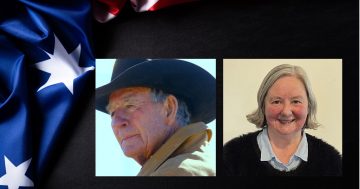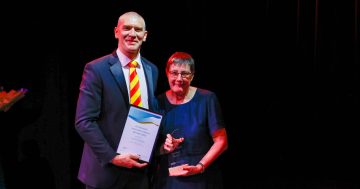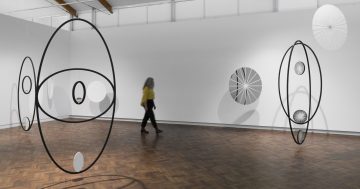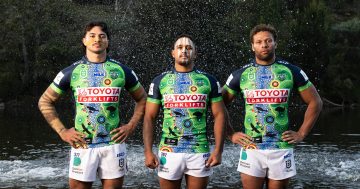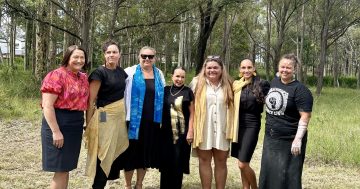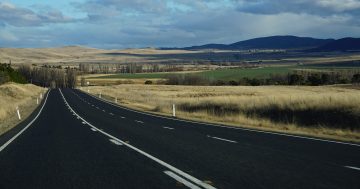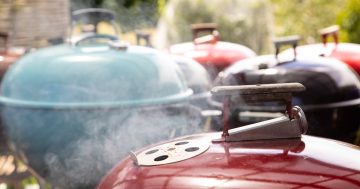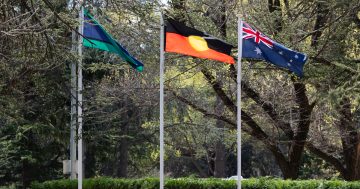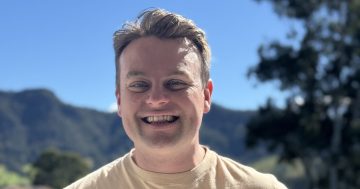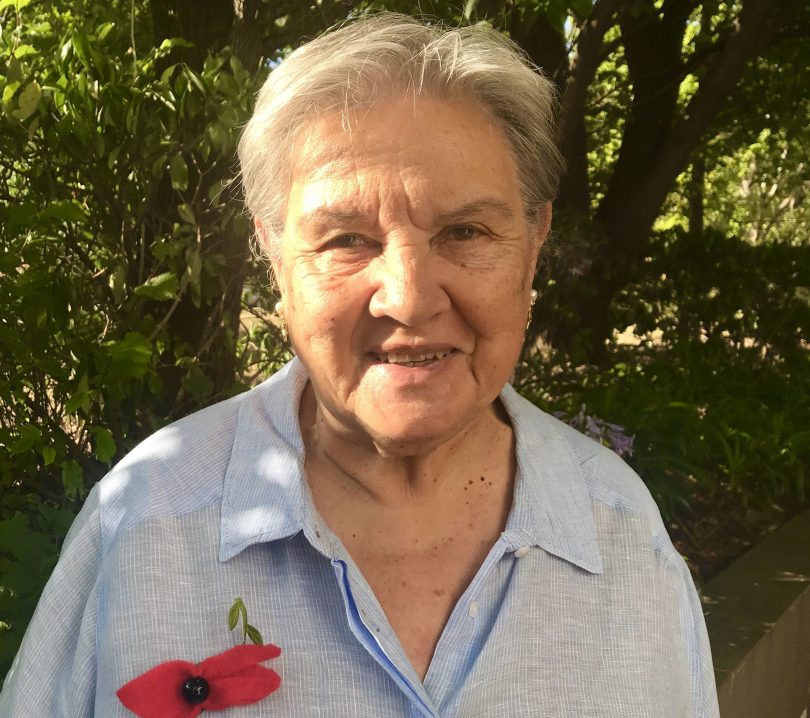
Pat Anderson AO is the ACT’s Senior Australian of the Year. Photo: Genevieve Jacobs.
On Australia Day, what does it mean to be an Aboriginal nominee for the highest honours our nation gives?
“It’s a bittersweet moment,” says Pat Anderson AO, the ACT’s Senior Australian of the Year.
A human rights and social justice advocate of long-standing, the Alyawarre woman from the Northern Territory is known internationally for her work on improved health, and educational and protection outcomes for Indigenous Australian children.
She was a guest at Reconciliation Australia’s annual breakfast for Aboriginal nominees, held at the Canberra Casino.
“It’s always an honour to be nominated but in all conscience – even when you have amazing days like this one – there’s an uncomfortable awkwardness that’s often painful if you think too much about it,” Pat told Region Media.
“l think we need to do something about this. The date doesn’t fit with everyone. If we want to have an inclusive society, I think we need to have a national conversation about this and sort it out.
“For goodness sake, it seems like there are some prominent Australians who don’t know their history very well. We might need a history lesson for the whole country and make that required pre-reading before we have that conversation.”
January 26 marks the date when the Union Jack was raised for the first time on Australian soil in 1788, although the First Fleet had arrived in Botany Bay a week before.
There were nine nominations across all categories this year for the Australian of the Year honours – almost a mob, Pat says. That representation has steadily climbed in the Honours list and has included a number of highly distinguished Aboriginal Australians, recognised for their significant contribution to the life of the nation.
Danzal Baker (the singer Baker Boy) and tennis player Ashleigh Barty were consecutive Young Australians of the Year in 2019 and 2020.
This year, the nominations for Australian of the Year included Tanya Hosch, Dr Wendy Page and Donna Stolzenberg; Pat Anderson, Aunty Isabel Reid, Aunty McRose Elu, Dr Richard Whalley, and the winner Dr Miriam-Rose Ungunmerr Baumann, were nominees for Senior Australian of the Year; and Stuart McGrath was nominated for Young Australian of the Year.
Tasmanian Grace Tame was named 2021 Australian of the Year, and Isobel Marshall the 2021 Young Australian of the Year.
Minister for Indigenous Australians Ken Wyatt spoke at the breakfast of a nation walking together towards a better future that begins with indigenous stewardship of the lands and waters but also recognises the waves of immigration that have made the modern nation.
“The shared values we cherish are those of democracy, individual freedom, rule of law and equality,” he said. “It’s the story of those who came more recently seeking a life without fear. It includes the feeling of pain for many of us.
“We should take some time on Australia Day to reflect upon the sacrifices many have made, the challenges we have faced, losses felt and the adversity we have overcome to stand as here as Australians, one and free.
“We have not only survived but thrived.”
Dr Wyatt noted the “quantum shift” in numbers of nominations for Australian of the Year categories over the past 20 years and called for greater recognition of Aboriginal heritage and traditions as an important part of all Australia Day events.
The minister said that Australia Day shouldn’t be “an either-or” proposition.
“We should be walking together, interwoven with the fabric of what makes this country great,” he said.
Recent polling suggests most Australians do not necessarily want to change the date of Australia Day, and some Indigenous leaders like Senator Malarndirri McCarthy believe that changing attitudes towards the day and making space for a minute’s silence or healing ceremonies might be a productive approach to resolving the challenges around January 26.
Pat Anderson says the feelings around being nominated are “up and down – in one way it’s great for your country to acknowledge you with awards for everyone. But for First Nations people it’s often fraught. It’s clear that for many Australians this is Invasion Day, and it is”.
“It’s odd to celebrate our national day on a date when others were dispossessed of their lands,” she said.
“I can’t understand what the gap is here. What stops us from a mature conversation and trying to come to reconciliation around this fraught date?”
Original Article published by Genevieve Jacobs on The RiotACT.







